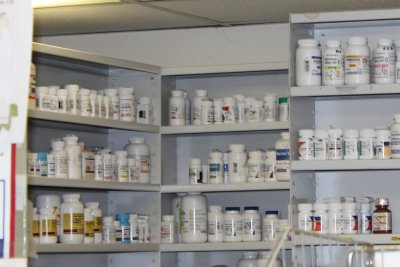
Chilean scientists develop the world’s first patented probiotic shown to prevent gastric cancer. File Photo by Billie Jean Shaw/UPI
May 30 (UPI) — Scientists at the University of Concepción in Chile have developed the world’s first patented probiotic designed to prevent gastric cancer. The oral supplement is 93.6% effective and targets Helicobacter pylori, a key bacterial factor in the disease.
The probiotic forms a protective coating along the stomach lining, preventing the bacteria from attaching when contaminated food or water is consumed. The supplement is approved for use starting at age 8 and also functions as an immunobiotic, helping regulate the body’s immune response.
Chilean biochemist and Ph.D. in biological sciences Apolinaria García led the research, using Lactobacillus fermentum as the base of the probiotic compound.
Gastric cancer is among the most common cancers worldwide and ranks as the fourth-deadliest. Often called a “silent killer,” its early symptoms are difficult to distinguish from more common and benign digestive conditions.
Helicobacter pylori is found in about half the global population and is linked not only to gastric cancer but also to precursor conditions such as stomach ulcers and MALT lymphoma.
In the United States, the American Cancer Society estimates that nearly 30,000 new stomach cancer cases will be diagnosed in 2025, with more than 10,000 deaths expected.
In Latin America, countries such as Chile, Peru, Ecuador and Colombia report some of the highest incidence rates and lowest survival rates for gastric cancer, said Dr. Patricio Mardónez, president of Chile’s National Health Network.
He noted that countries like Japan and South Korea have significantly reduced mortality through widespread early detection and screening programs.
“Regionally, what was once a cancer seen mostly in people over 65 is now being detected in patients under 50,” Mardónez said.
While the exact causes behind the rise in gastric cancer diagnoses among younger people are still under investigation, several hypotheses have been proposed.
Changes in diet and lifestyle may be contributing, including increased consumption of highly processed foods high in sodium and low in fresh fruits and vegetables. Sedentary behavior and obesity are also risk factors, along with prolonged use of medications such as proton pump inhibitors (PPI), commonly prescribed for acid reflux.